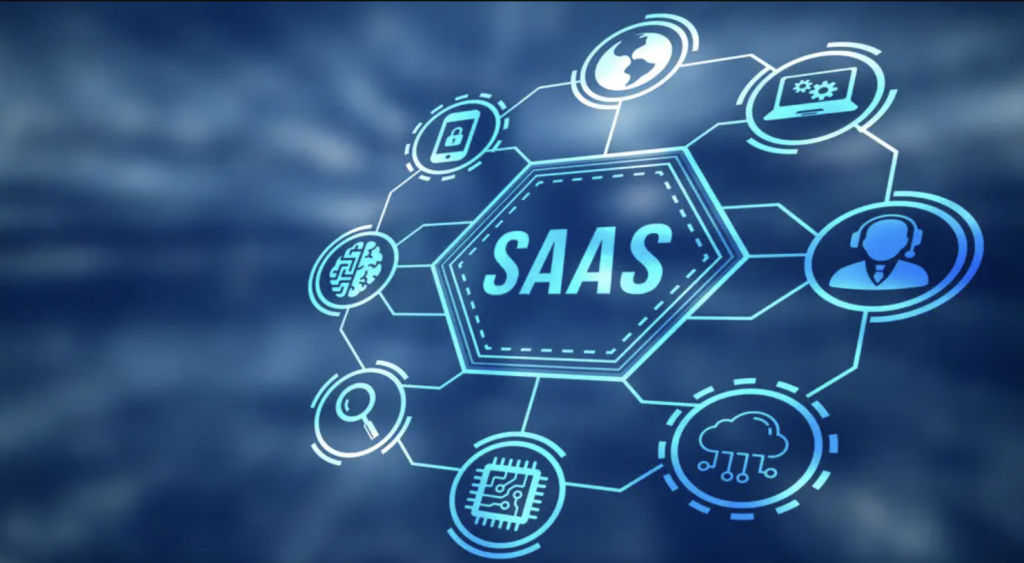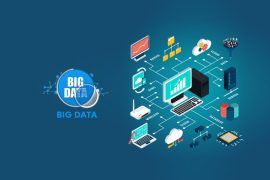In today’s fast-paced business landscape, providing exceptional customer support is no longer a luxury but a necessity. As businesses strive to meet the ever-growing expectations of their customers, HelpDesk software has emerged as a vital tool in streamlining support operations and enhancing the overall customer experience. HelpDesk software serves as the central hub for managing customer inquiries, resolving issues, and delivering timely assistance across various communication channels. From handling support tickets to providing self-service options through knowledge bases and FAQs, these platforms empower businesses to efficiently address customer needs while maintaining a high level of satisfaction.
However, with the multitude of HelpDesk SaaS solutions available in the market, choosing the right one can be a daunting task for businesses. This article aims to alleviate the complexity by offering a comprehensive guide to selecting the most suitable HelpDesk SaaS solution. By outlining key considerations such as feature sets, usability, scalability, security, and integration capabilities, businesses can make informed decisions that align with their unique requirements and drive success in their customer support endeavors.
So, without further ado let us dive directly into the key points to consider while choosing the right Help Desk SaaS Software.
Table of Contents
How to Choose the Right Help Desk SaaS Software

Ease of Use
User experience plays a pivotal role in the effectiveness of HelpDesk software, impacting both agents tasked with resolving customer inquiries and the customers themselves seeking assistance. A user-friendly interface not only enhances productivity and efficiency for support teams but also ensures a seamless and satisfactory experience for customers interacting with the platform. When evaluating the ease of use of a HelpDesk SaaS solution, businesses should prioritize intuitive navigation, clear organization of features, and straightforward workflows. Assessing usability can be facilitated through demos and trial versions provided by software vendors. These hands-on experiences allow businesses to explore the platform’s functionalities, interact with its interface, and evaluate its suitability for their specific needs.
Additionally, businesses should consider factors such as customizable dashboards, easy-to-use ticket management systems, and efficient knowledge base access to further enhance usability. By prioritizing ease of use in their selection process, businesses can maximize user adoption, minimize training requirements, and ultimately deliver superior customer support experiences.
Scalability
Scalability is a critical consideration when selecting a HelpDesk SaaS solution as it ensures that the platform can evolve alongside the business. With growth being a primary objective for most organizations, choosing a solution capable of accommodating increasing ticket volumes, expanding user bases, and additional support channels is imperative.
As businesses expand, their customer support needs inevitably grow in tandem. Therefore, it’s crucial to opt for a HelpDesk solution that can seamlessly scale to meet these evolving demands without compromising performance or efficiency. Considerations should include the platform’s ability to handle a larger volume of tickets without slowdowns, its capacity to onboard new users and agents effortlessly, and its flexibility to integrate new support channels as the business expands its customer engagement strategies.
Furthermore, businesses should assess the scalability features offered by the HelpDesk SaaS provider, such as customizable workflows, automated routing, and robust reporting and analytics tools. By prioritizing scalability in their selection process, businesses can future-proof their customer support operations, ensuring continued success and satisfaction as they grow.
Customization Options
Customization is paramount when selecting a HelpDesk SaaS solution, as it enables businesses to tailor the platform to their unique requirements and workflows. Every business operates differently, with distinct processes and priorities, making the ability to customize essential for maximizing the platform’s effectiveness. By customizing the HelpDesk software, businesses can align it more closely with their specific needs, resulting in increased efficiency, productivity, and ultimately, customer satisfaction. Customization options may include configuring ticket forms to capture specific information relevant to the business, defining automated workflows to streamline support processes, and branding the interface to reflect the company’s identity.
Moreover, advanced customization features allow businesses to adapt the HelpDesk solution as their requirements evolve over time. This could involve creating custom fields, triggers, and automation rules to accommodate changing business dynamics and support strategies.
Ultimately, the flexibility to customize the HelpDesk SaaS solution empowers businesses to optimize their customer support operations, foster greater alignment with organizational objectives, and deliver a tailored experience that meets the unique needs of their customers.
Integration Capabilities
Seamless integration with other business tools and systems is a key advantage of modern HelpDesk SaaS solutions. By integrating with existing software applications, HelpDesk platforms can centralize data, streamline workflows, and provide a more comprehensive view of customer interactions and support operations. One of the primary benefits of integration is enhanced productivity. For instance, integrating with CRM software enables agents to access customer information and history directly from the HelpDesk interface, facilitating personalized and efficient support. Similarly, integration with project management tools allows for seamless collaboration between support teams and other departments, ensuring swift resolution of customer issues.
Considerations when evaluating integration capabilities include the availability of pre-built integrations with popular software applications, the ease of setting up and configuring integrations, and the flexibility to create custom integrations if needed. Additionally, businesses should assess the scalability of integration options to ensure compatibility with future software additions or changes to the tech stack.
By prioritizing integration capabilities in their selection process, businesses can leverage the full potential of their HelpDesk SaaS solution, optimize workflows, and deliver a cohesive and seamless customer support experience across all touchpoints.
Security and Compliance
Data security and compliance are paramount considerations when selecting a HelpDesk SaaS solution. With the increasing emphasis on privacy and data protection, businesses must ensure that their chosen platform adheres to industry-standard security practices and complies with relevant regulations such as GDPR, HIPAA, and PCI-DSS.
Ensuring compliance with these regulations not only protects sensitive customer information but also mitigates the risk of regulatory fines and reputational damage. When evaluating the security measures implemented by SaaS providers, businesses should look for certifications, such as SOC 2 Type II or ISO 27001, which demonstrate adherence to rigorous security standards.
Additionally, businesses should assess the platform’s data encryption methods, access controls, and data backup procedures. Conducting thorough due diligence, including security audits and vendor assessments, can help ensure that the chosen HelpDesk SaaS solution meets the organization’s security requirements and provides a secure environment for customer data.
Cost and Pricing Structure
Understanding the cost and pricing structure of HelpDesk SaaS solutions is crucial for making informed decisions that align with the organization’s budget and requirements. Pricing models can vary significantly among providers, with factors such as the number of users, feature tiers, and contract terms influencing costs.
The number of users typically correlates with pricing, with many providers offering tiered pricing plans based on user count. Feature tiers may also impact pricing, with more advanced features often available in higher-priced plans. Additionally, contract terms, such as monthly or annual subscriptions, can affect pricing flexibility and overall expenditure.
When assessing the total cost of ownership, businesses should consider not only the base subscription fees but also any additional costs, such as setup fees, customization fees, and fees for integrations or add-on features. To avoid unexpected expenses, businesses should carefully review pricing details, negotiate terms where possible, and seek transparent pricing structures that minimize the risk of hidden fees.
By thoroughly evaluating the cost and pricing structure of HelpDesk SaaS solutions, businesses can make financially sound decisions that maximize value and align with their budgetary constraints.
Performance and Reliability
The performance and reliability of a HelpDesk SaaS solution are critical factors that directly impact the efficiency of customer support operations and overall business continuity. Businesses rely on HelpDesk platforms to deliver timely assistance to customers, making uptime guarantees, robust server infrastructure, and comprehensive disaster recovery plans essential. Uptime guarantees ensure that the HelpDesk platform is available and accessible to users when needed, minimizing disruptions to support services. Assessing the provider’s track record for meeting uptime SLAs and their approach to mitigating downtime is crucial in ensuring reliable service.
Furthermore, evaluating the server infrastructure supporting the HelpDesk platform is essential for assessing performance and reliability. Considerations include data center locations, redundancy measures, and scalability to accommodate fluctuating demand.
Disaster recovery plans are also vital for minimizing the impact of potential disruptions, such as server failures or cyberattacks. Businesses should inquire about the provider’s data backup practices, redundancy measures, and recovery time objectives (RTOs) to ensure adequate safeguards are in place.
By prioritizing performance and reliability considerations when selecting a HelpDesk SaaS solution, businesses can minimize service interruptions, maintain customer satisfaction, and uphold the integrity of their support operations.
Customer Support
Responsive customer support is crucial for businesses relying on HelpDesk SaaS solutions to address technical issues, resolve inquiries, and optimize platform usage. A provider’s commitment to offering comprehensive support resources can significantly impact the overall user experience. Effective customer support ensures timely resolution of issues, minimizing downtime and disruptions to business operations. It also fosters trust and confidence in the provider, enhancing the customer-provider relationship.
When evaluating the level of customer support provided by SaaS vendors, businesses should consider factors such as response times, availability of support channels (e.g., email, phone, live chat), and the expertise of support staff. Additionally, assessing the quality and accessibility of self-service resources, such as knowledge bases, tutorials, and community forums, can provide insights into the provider’s commitment to customer success.
Choosing a HelpDesk SaaS solution with responsive and knowledgeable customer support can help businesses overcome challenges effectively, maximize platform utilization, and ultimately achieve their customer support objectives.
Conclusion
Selecting the right HelpDesk SaaS solution is a crucial decision for businesses looking to enhance their customer support operations. By considering key factors such as feature set, ease of use, scalability, customization options, integration capabilities, security, cost, performance, and customer support, businesses can make informed decisions that align with their objectives and requirements. A robust HelpDesk platform not only streamlines support processes but also empowers businesses to deliver exceptional customer experiences. From managing support tickets to providing self-service options and analyzing customer interactions, the right HelpDesk SaaS solution serves as a cornerstone for driving customer satisfaction and loyalty.
In today’s competitive landscape, businesses must prioritize customer support excellence. By investing in a reliable and feature-rich HelpDesk SaaS solution, businesses can optimize their support operations, improve efficiency, and ultimately differentiate themselves by delivering superior customer service.
As businesses navigate the myriad options available in the market, careful evaluation and consideration of each factor outlined in this guide will pave the way for selecting a HelpDesk SaaS solution that meets both current needs and future growth aspirations. By choosing wisely, businesses can set themselves on a path toward success in delivering outstanding customer support experiences.





